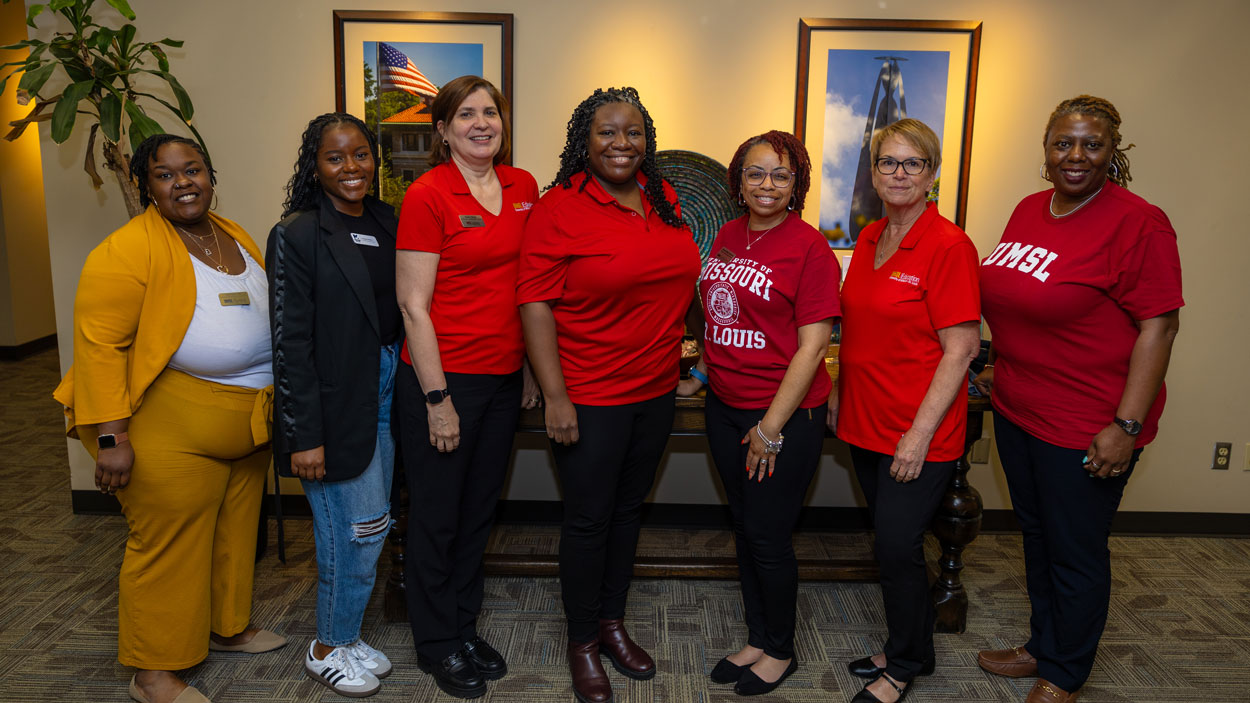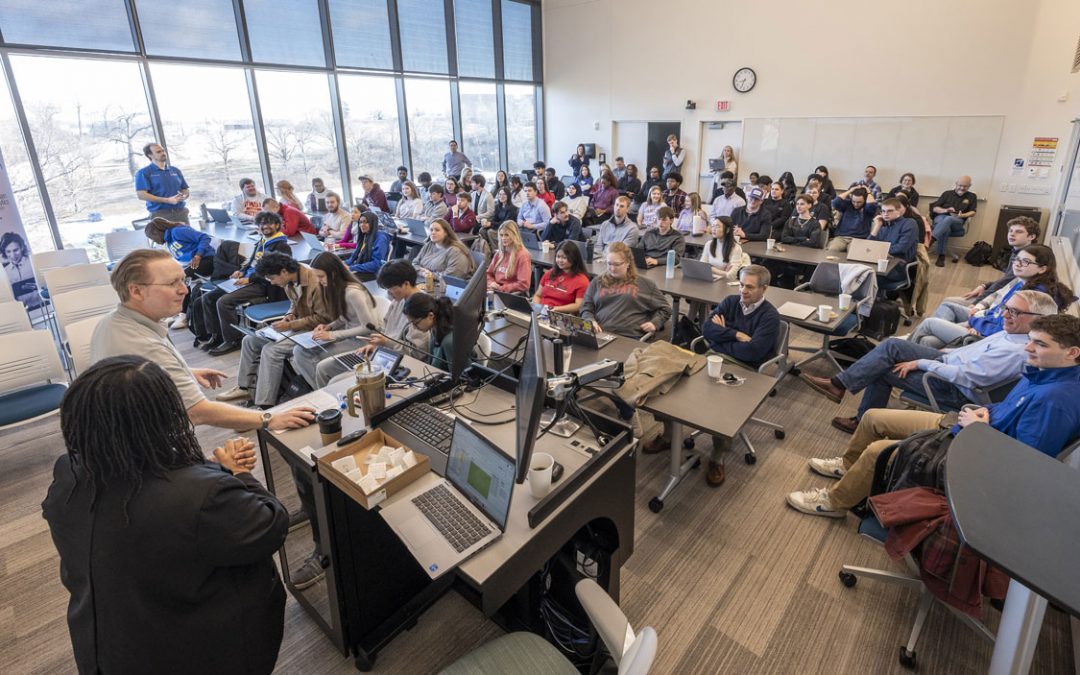
Six UMSL staff members participated in the 2023-24 Advisor Development Program. From left: Valonda Roberts, Ernesha Bland, Karen Allman, Shlynda Hudson, Nykea Watts-Edwards and Sue Bateman. Colette Dixon (far right) is one of the UMSL leaders of the program. (Photo courtesy of Colette Dixon)
For a university system committed to providing the best educational and growth experiences for students, providing support for the people who support the students is a priority, too.
Six members of the University of Missouri–St. Louis’ student success community – comprised of advisors and academic coaches – participated in the 2023-24 Advisor Development Program, along with employees from the other UM System universities. The year-long program consisted of four in-person gatherings – at Missouri University of Science and Technology and UMSL in the fall, and at the University of Missouri–Columbia and the University of Missouri–Kansas City this spring – and regular check-in sessions on the participants’ home campus.
“We want the people working with the students to continue to grow, to keep them fresh and sharpen their skills as well,” said Colette Dixon, the associate provost for student success at UMSL. “ADP provides advisors and academic coaches the opportunity to focus on their professional strengths and how they align with advising core competencies, as they connect with colleagues in the UM System.”
The final session, held at UMKC, included a culmination ceremony.
“The goal is to have them think about long-term,” Dixon said. “It’s not actually about moving positions, but to think about how you can expand on the job. How can you make it more scholarly? How can you create best practices in your space? And as you build that confidence, could there be next steps? Those are the kinds of conversations we have with them. I would meet with them as a group and individually to see where they’re at, kind of as a mentor on this campus.”
Dixon and Sylvia Harris, the director of academic advising and student services, were the two on-campus leaders at UMSL.
The group representing UMSL included Valonda Roberts, a student service coordinator in the College of Nursing; Nykea Watts-Edwards, a graduate student support specialist; Karen Allman, an academic advisor in the College of Education; Sue Bateman, an academic advisor in the College of Education; Ernesha Bland, a student success coach for Missouri Online; and Shlynda Hudson, an academic coach in the College of Business Administration.
“I am always excited for an opportunity to learn and grow,” Roberts said. “This experience allowed for personal and professional growth. It stretched my thinking about my strengths and how I can build on those further to achieve my professional goals. It also helped me to do a deeper dive into a research topic of passion that I have not had the time to focus on in my current role.”
The ADP program originally started in 2015, and it has gone through different iterations since then – the COVID-19 pandemic forced it online for two years – and evolved based on feedback.
“We want the information they’re given to go into something that’s impactful, so we made sure that their projects were geared toward that,” Dixon said. “The projects this year, overall, were more geared towards best practices and scholarly advising.”
The topics for the UMSL participants:
Bateman: Welcome to the Wonderful World of Advising (create a training and reference manual for advisors in the College of Education)
Hudson: #TimeForChange: Rebranding the Advising Syllabus for Gen Z (advising across generational differences)
Allman: Effects of an Embedded Academic Coach on Persistence and Retention (review of the role of a retention coach in a college)
Roberts: Stuck in the Middle: Getting Students over the Hump (focusing on the needs of students with a 2.0-3.0 GPA)
Bland: Accessible and Inclusive Practices with Online Students (develop accessible and inclusive outreach for Missouri Online students)
Watts-Edwards: Missouri Louis Stokes Alliance for Minority Participation Scholar Liaison Support Role (develop a layer of support for students interested in grad school)
Roberts said she found three major elements in her project research.
“First, students who start in the middle range and increase their GPA every semester are more likely to stay and graduate,” she said. “Those whose GPA decreases typically drop out. Second, 80% of students who are in the middle were high school honors students, meaning they have the potential to be high-achieving again and more than likely want to be. Third, the courses they struggle with are mostly math, science and major-specific courses. Some of the content being introduced in these subjects, they have no prior knowledge of.”
In addition to being given the time to research topics related to their roles, the opportunity to interact with their peers and colleagues from the other UM System universities was beneficial, too.
“It was amazing to be able to thought-partner with other higher education professionals without having to pay for a conference,” Roberts said. “Each campus was very unique in style, but our concerns and passion for our students were unifying. Even with being on different campuses, we experience a lot of the same things with our students. I believe our projects also showed how similar our needs are. I believe there should be more opportunities like this at different levels to bridge the division in the UM System.”
Participants for the 2024-25 program will announced on July 1.














